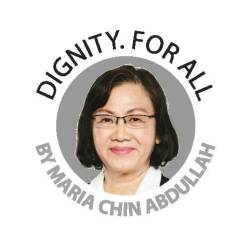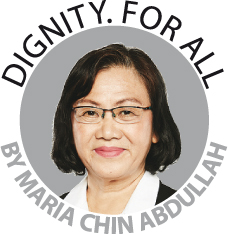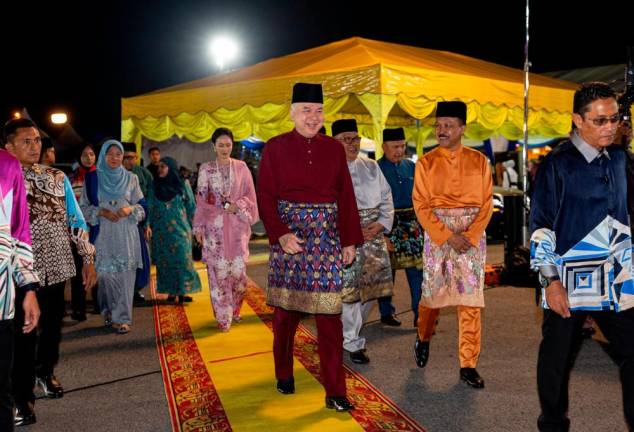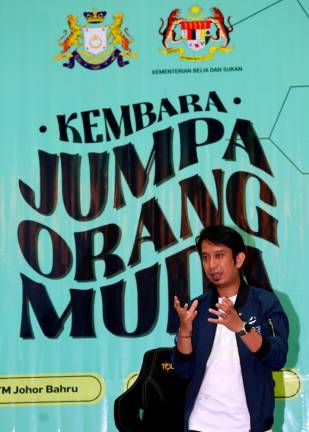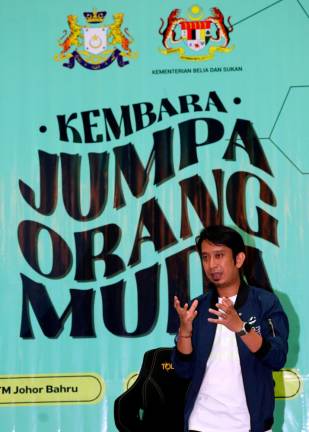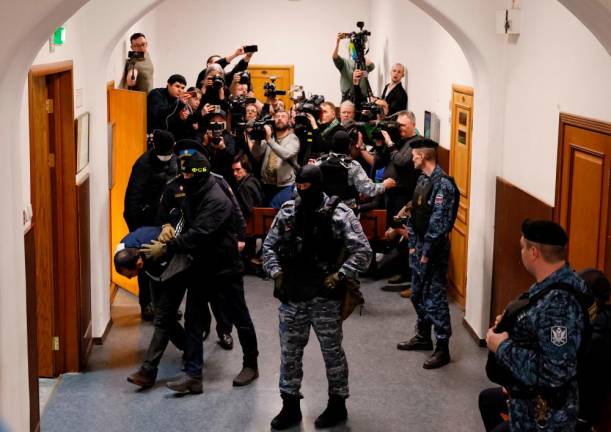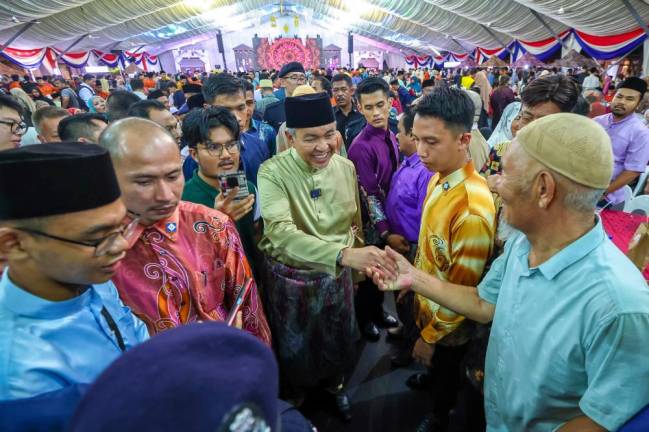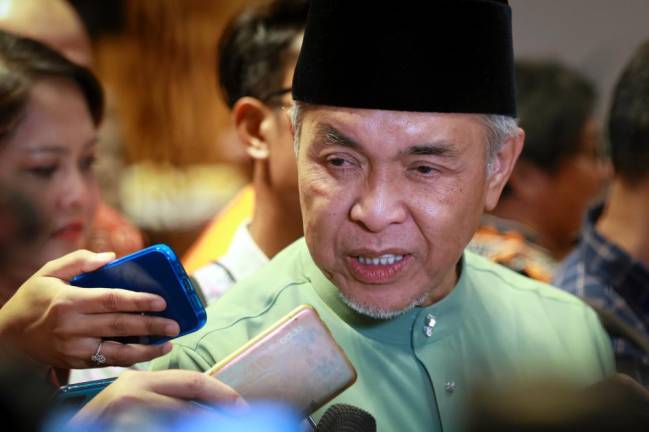ON the eve of Hari Raya, my office received good news. A 62-year-old taxi driver was released under the Security Offences (Special Measures) Act (SOSMA), 2012. Unknown to him, three of his passengers had no legal travel documents and he was arrested on suspicion of human trafficking. Eventually a dedicated lawyer and a compassionate interrogating officer helped to secure his release and he was home with his two children for Raya.
Not all cases have a happy ending
SOSMA is a procedural Act and complements the Penal Code and Criminal Procedure Code. It allows for collection of evidence for submission to court trials, investigation and remand remedies. A few Acts are attached to SOSMA, such as Chapter 6 (Offences against the state), Chapter 6A (Offences relating to Terrorism), Section124B & C for activities detrimental to parliamentary democracy under the Penal Code (Act 574) and the Anti-Trafficking in Persons and Anti-Smuggling of Migrants Act.
When former prime minister Najib Razak announced the abolishment of the Internal Security Act in July 2012, he had in the same breath brought in SOSMA and other draconian laws. He said it was “to prevent subversive action, organised violence and criminal acts to preserve public order and security, legislation will be enacted under the umbrella of Article 149 of the Federal Constitution. In essence, the legislation will have the aim of maintaining peace, well-being, tranquillity and order in the lives of the people and the country.” Together with SOSMA, the Prevention of Terrorism Act (POTA) 2015 and the Prevention of Crime Act 1959 (POCA), were meant to tackle crime, terrorism and extremism.
With preventive detention, the government can control and prevent organised crime and terrorist activities before they happen. The longer detention was necessary as those detained were supposedly too dangerous to release.
But these laws provide the police with “carte blanche” (unrestricted authority) to indulge in abuses.
Physical Abuses
Suaram has documented complaints from at least 14 SOSMA detainees in 2016, who confessed that they had been beaten, tortured and treated in degrading and inhumane manner during detention. One detainee was brave enough to make a police report against his abusers. During his detention, he was forced to half-stand for hours, made to cross-leg and stepped on, beaten to force a confession, and made to perform degrading acts by his interrogators. These reports were submitted to the Malaysian Commission of Human Rights (Suhakam) and actions against the perpetrators are still pending.
Political tool to curb critics
In the case of SOSMA, political opponents who were critical of the former government were detained including Mathias Chang, Khairuddin Abu Hassan and myself.
This goes against Section 4(3) of SOSMA which states “no person shall be arrested and detained under this section purely for her/his political belief or political activity”. But what constitutes terrorism or undermining parliamentary democracy remains a mystery. Some say it goes with violent activities but in political detention, was violence ever proven? Some say it is subversive, but when the British introduced the Internal Security Act, it did not curb subversives but was used to suppress political dissidents. The previous government too found that justifying detention due to “subversive” activities was useful to silence critics.
Under the guise of preventive detention, it allows the police to arrest without a warrant anyone who is under suspicion. The police have 28 days to collect evidence as compared to 14 days under the Criminal Procedure Code; no bail unless you are a woman, under 18, sick or infirm; discretionary access and most of the time no access to lawyer and families; and solitary confinement. Some detainees have died in custody as in the case of Thanabalan Subramaniam in April 2018.
The rule of law is not followed as the trial court cannot direct the public prosecutor to produce any statement or summary of information deemed sensitive, or prejudicial to national security. This makes defence very challenging. The most unjust part of SOSMA is that the accused could be held in prison until the final appeals are completed even though the trial court has set the person free.
Section 11 (5) of SOSMA states that a review is carried out every five years and this sets the number of years that one can be detained pending review. Yet, there are at least 12 detainees, most classified as soft supporters, who have been detained for seven-15 years.
Negates counterterrorism policy
Education Minister Dr Mazlee Malik had counselled some of those detained for terrorist activities in 2016 and grouped them as being either soft or hardcore supporters. A soft supporter is a distant sympathiser of the IS movement or someone who has sincere humanitarian empathy towards Muslims persecuted in the Middle East. They may have posted photos, videos on their laptops, handphones, sent small donations to Syria or were part of a WhatsApp group.
According to Suaram, they form the largest group of detainees, about 70-80%, under SOSMA.
A hardcore supporter is one who directly took part in terrorist activities, led networks and mobilised supporters to go to Syria or the Middle East to help in the fighting or to take part in terrorist activities in Malaysia.
Mazlee had warned that detention under draconian procedures opens up opportunities for interaction between these groups and possible radicalisation of the soft supporters.
So, instead of preventing terrorism, preventive detention accentuates the spread of extremism and terrorist ideology. It negates the counterterrorism policy especially when innocent people are detained. Would it not have been strategic to have alternative effective approaches to isolate hardcore terrorists and prevent the spread of their extremist ideas?
Sufficient laws to curb terrorism
Civil society, the Bar Council and other quarters have argued that existing laws are sufficient to deal with terrorism and organised crime. I too believe so.
If there are any weaknesses in the criminal justice system, this is the time to reform and strengthen our laws. If law enforcers are worried about the handling of intelligence or secret information, classified data, sensitive disclosure of whereabouts, witness protection, then they must be prepared to move the conversation towards human rights-based laws and enforcement which can deal with national security cases.
Some say it is costly to use criminal prosecutions as many will be in jail. However, preventive detention is just as costly due to long detention periods and periodic reviews, assuming they are carried out.
In many ways, preventive detention makes martyrs of the detainees. They are hailed for enduring the ill-treatment, long detention and worse, not having a proper open court trial further cements the perception that they have been unjustly detained and rule of law was not upheld in democratic new Malaysia.
When released they are the heroes and not the government or its war against terror. I believe that it is a much better strategy to charge these hardcore terrorists, especially those who lead and plan terrorist activities, as criminals rather than as political detainees under SOSMA or POTA.
Comments: letters@thesundaily.com



